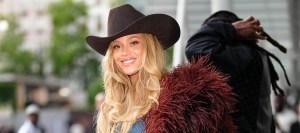Johnson & Johnson’s price has plummeted, after it was reported that the company’s baby powder contained asbestos.
According to CNBC, the business’ shares dropped 9 percent, after reports emerged that Johnson & Johnson executives, lawyers, doctors, and mine managers all knew for decades that trace amounts of the harmful substance had made it into the baby powder product.
Videos by PopCulture.com
The reports of tainted baby powder surfaced as a result of years-old documents, trial testimonies, and depositions being reviewed.
It was gathered from the information available, that many people knew about the asbestos, but never reported it.
Johnson & Johnson subsequently released a statement, calling the report “one-sided, false and inflammatory.”
“Simply put, the Reuters story is an absurd conspiracy theory, in that it apparently has spanned over 40 years, orchestrated among generations of global regulators, the world’s foremost scientists and universities, leading independent labs, and J&J employees themselves,” the company’s statement went on to read.
“Johnson & Johnson’s baby powder is safe and asbestos-free. Studies of more than 100,000 men and women show that talc does not cause cancer or asbestos-related disease,” the statement continued. “Thousands of independent tests by regulators and the world’s leading labs prove our baby powder has never contained asbestos.”
The company also said that their “attorneys provided Reuters with hundreds of documents and directly responded to dozens of questions in order to correct misinformation and falsehoods. Notwithstanding this, Reuters repeatedly refused to meet with our representatives to review the facts and refused to incorporate much of the material we provided them.”
“The Reuters article is wrong in three key areas: The article ignores that thousands of tests by J&J, regulators, leading independent labs, and academic institutions have repeatedly shown that our talc does not contain asbestos,” the statement explained. “The article ignores that J&J has cooperated fully and openly with the U.S. FDA and other global regulators, providing them with all the information they requested over decades.”
“We have also made our cosmetic talc mines and processed talc available to regulators for testing. Regulators have tested both, and they have always found our talc to be asbestos-free. The article ignores that J&J has always used the most advanced testing methods available to confirm that our cosmetic talc does not contain asbestos,” Johnson & Johnson continued. “Every method available to test J&J’s talc for asbestos has been used by J&J, regulators, or independent experts, and all of these methods have all found that our cosmetic talc is asbestos-free.”
Ernie Knewitz, Johnson & Johnson’s vice president of global media relations, also provided an emailed statement to Reuters, further denying the claims against the company.
“Plaintiffs’ attorneys out for personal financial gain are distorting historical documents and intentionally creating confusion in the courtroom and in the media,” he stated. “This is all a calculated attempt to distract from the fact that thousands of independent tests prove our talc does not contain asbestos or cause cancer. Any suggestion that Johnson & Johnson knew or hid information about the safety of talc is false.”
Photo credit: Getty









